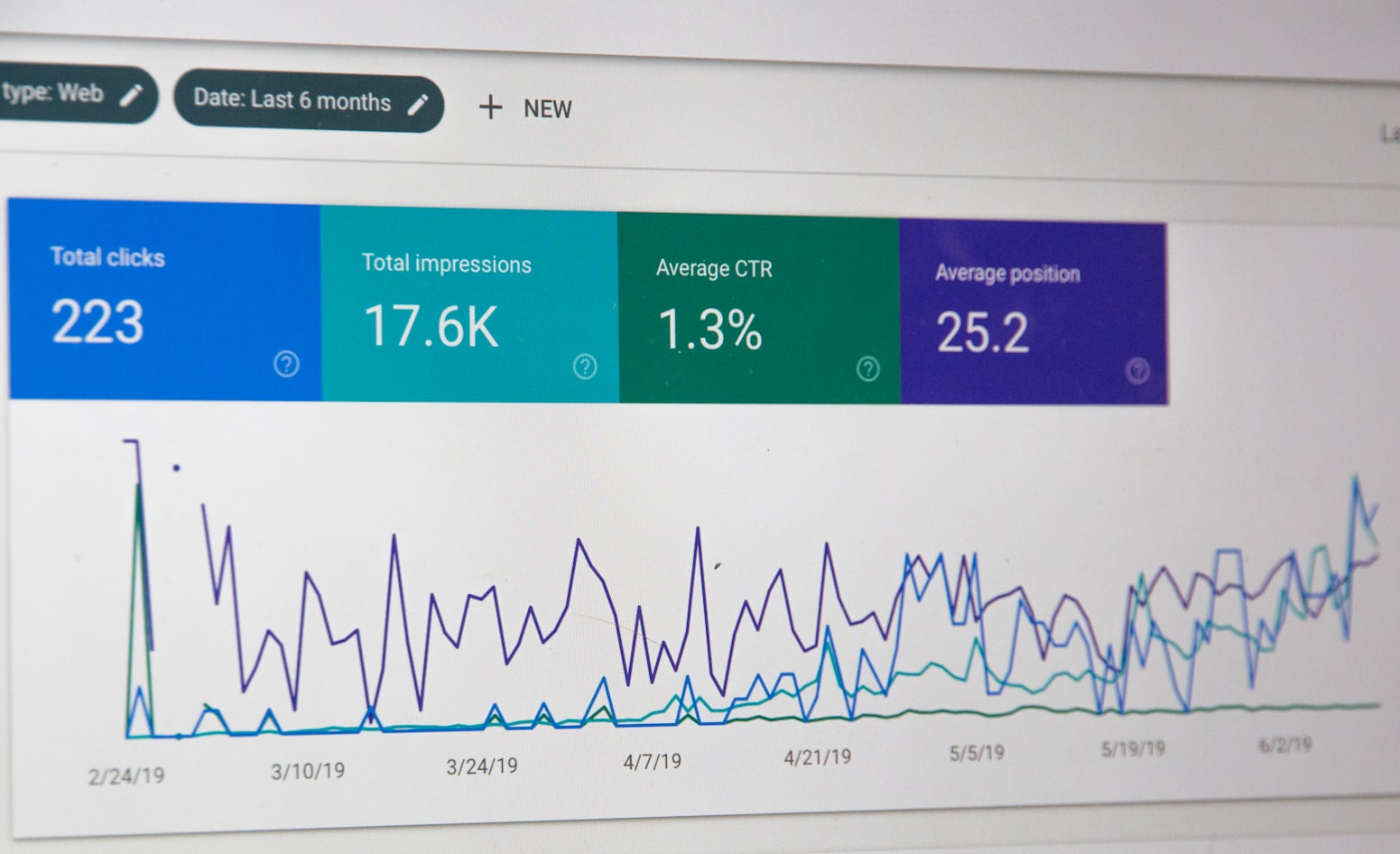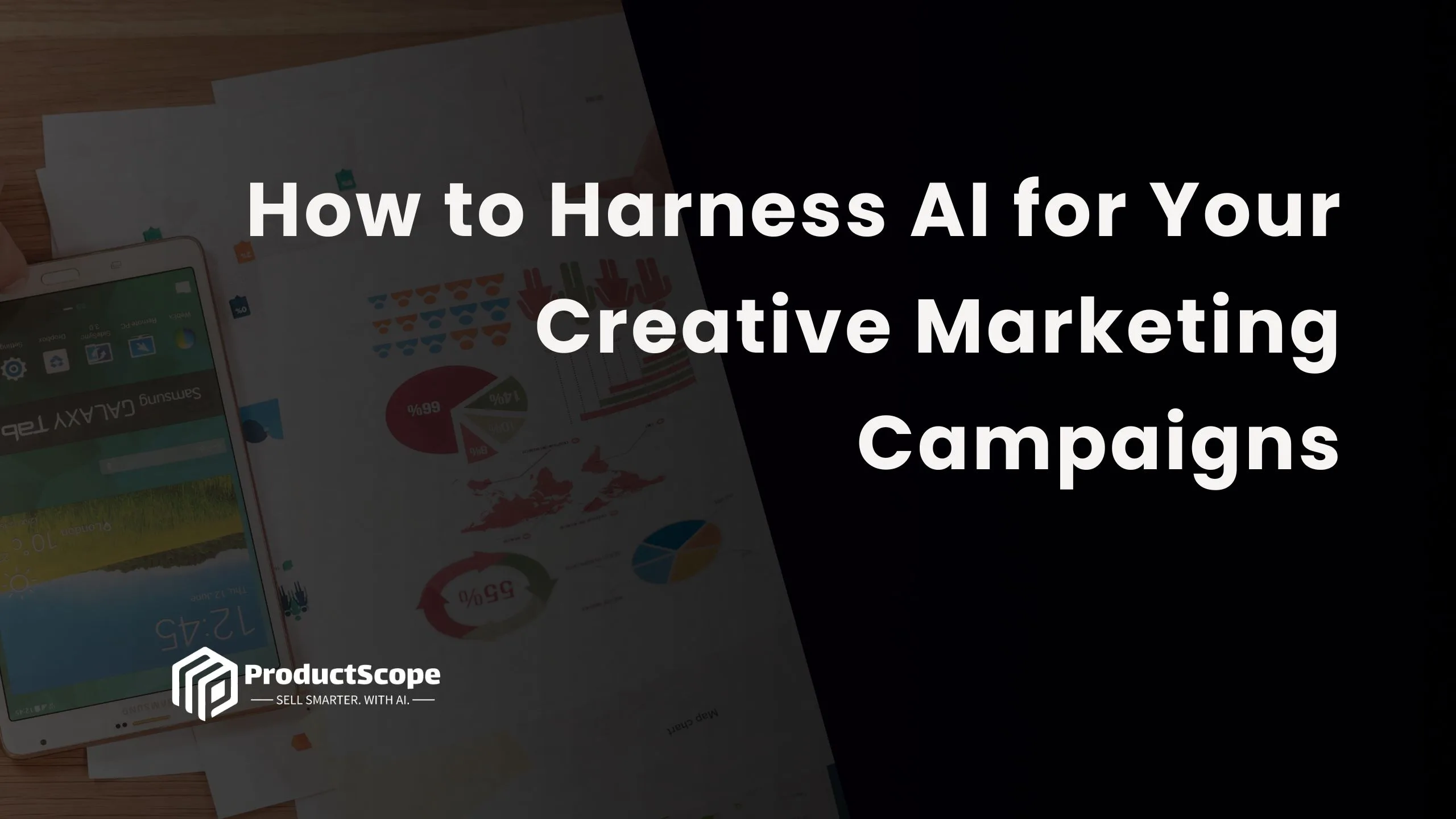As e-commerce brand owners, understanding and harnessing AI’s capabilities can transform your creative marketing campaigns , making them more effective and personalized. This article delves into how AI can be your ally in crafting innovative marketing campaigns.

Understanding AI Marketing Strategies
AI in marketing is not just a buzzword; it’s a powerful tool that can analyze consumer behavior, predict trends, and automate tasks. By leveraging AI, you can create marketing strategies that are not only data-driven but also highly personalized, ensuring that your message resonates with your target audience. AI’s ability to process vast amounts of data quickly helps in making informed decisions, enhancing the effectiveness of your campaigns.
Key Strategies to Effectively Integrate AI Into Your Marketing Efforts
Data Analysis and Insights
AI-powered data analysis and insights revolutionize marketing by analyzing customer data to uncover preferences, behaviors, and trends. This enables businesses to create highly targeted and personalized marketing campaigns. AI algorithms collect and clean customer data from various sources, identifying hidden patterns and correlations that human analysts may miss.
By segmenting customers based on their characteristics, businesses can tailor their marketing strategies to specific segments, ensuring relevant and personalized messages. AI also enables predictive analytics, allowing businesses to anticipate future customer behavior and make timely offers or recommendations.
Real-time insights help businesses respond quickly to changing trends, while sentiment analysis gauges customer satisfaction levels. Ultimately, AI empowers businesses to create personalized marketing campaigns that resonate with individual customers.

Content Creation
AI tools have revolutionized the process of content creation by offering valuable assistance in generating creative and engaging content. With the help of AI algorithms, businesses can now automate tasks such as writing copy, creating visuals, and even composing music. This not only saves time but also provides a starting point for creative ideas.
AI-powered writing tools can generate high-quality content by analyzing vast amounts of data and mimicking human writing styles. These tools can produce blog posts, articles, social media captions, and more, allowing businesses to consistently produce relevant and engaging content for their audience.
Similarly, AI-powered design tools can generate visually appealing graphics and images based on user preferences and brand guidelines. This streamlines the design process and ensures consistent branding across various platforms. Additionally, AI algorithms can even compose music by analyzing patterns and styles from existing compositions. This opens up new possibilities for businesses in the entertainment industry or those looking to incorporate music into their marketing campaigns.
Overall, AI-powered content creation tools provide businesses with efficient and innovative ways to generate creative content that resonates with their audience.
Personalization at Scale
Personalization at scale has become a game-changer in the world of marketing and customer engagement, thanks to the power of AI. With AI algorithms, businesses can now personalize content for individual users on a large scale, creating a more tailored and engaging experience. One area where AI excels in personalization is through personalized emails.
By analyzing user data and behavior, AI can generate dynamic email content that is specifically tailored to each recipient’s preferences and interests. This level of personalization not only increases open rates and click-through rates but also enhances customer satisfaction and loyalty.
Another way AI enables personalization at scale is through product recommendations. By leveraging machine learning algorithms, businesses can analyze vast amounts of customer data to understand individual preferences and buying patterns. This allows them to provide personalized product recommendations to each user, whether it’s on an e-commerce website or through targeted ads. This level of personalization not only improves the customer experience but also increases conversion rates and drives revenue growth.

Predictive Analytics
Predictive analytics, powered by AI, has emerged as a valuable tool for businesses to gain insights into future trends and customer behaviors. By analyzing vast amounts of historical data, AI algorithms can identify patterns, correlations, and trends that humans may not be able to detect. This enables businesses to make data-driven predictions about future outcomes and take proactive measures to optimize their strategies.
One area where predictive analytics can be highly beneficial is in planning marketing campaigns. By leveraging AI algorithms, businesses can analyze historical campaign data, customer behavior, and market trends to predict which campaigns are more likely to resonate with their target audience. This allows marketers to allocate their resources more effectively by focusing on campaigns that have a higher probability of success.
For example, AI can identify the characteristics of customers who are more likely to respond positively to a particular campaign and help marketers tailor their messaging and targeting accordingly.
Chatbots and Virtual Assistants
Chatbots and virtual assistants, powered by AI, have revolutionized the way businesses interact with their customers. These intelligent conversational agents can be implemented on websites, social media platforms, or messaging apps to provide instant customer service, engage users, and even drive sales.
One of the key benefits of chatbots and virtual assistants is their ability to provide instant customer service. They can handle a wide range of customer inquiries and provide immediate responses, 24/7. Whether it’s answering frequently asked questions, providing product information, or assisting with basic troubleshooting, chatbots can offer quick and accurate support. This not only improves customer satisfaction but also reduces the burden on human customer service agents, allowing them to focus on more complex issues.

SEO Optimization
SEO optimization is a crucial aspect of digital marketing, and AI has emerged as a powerful tool to enhance the effectiveness of this process. By leveraging AI technology, businesses can optimize their websites and content to rank higher in search engine results pages (SERPs) and attract more organic traffic.
AI-powered SEO tools can analyze vast amounts of data and provide valuable insights to improve website performance. These tools can conduct comprehensive website audits, identifying technical issues that may hinder search engine crawling and indexing. They can also analyze website structure, load times, and mobile friendliness, ensuring that the website meets the criteria set by search engines for optimal ranking.
Voice Search Optimization
Voice search optimization has become increasingly important in the digital landscape, thanks to the growing popularity of voice assistants like Siri, Google Assistant, and Amazon Alexa. AI technology plays a crucial role in helping businesses optimize their content for voice search, enabling them to stay ahead in the market.
AI-powered voice search optimization tools can analyze and understand natural language patterns and user intent. They can identify the specific phrases and long-tail keywords that users are likely to use when conducting voice searches. By incorporating these keywords into their content, businesses can increase their chances of appearing in voice search results.

Influencer Marketing
Influencer marketing has emerged as a highly effective strategy for brands to connect with their target audience and build trust. With the advent of AI technology, businesses now have the ability to leverage data analysis to identify the most suitable influencers for their brand.
AI algorithms can analyze vast amounts of data, including audience demographics and engagement rates, to determine which influencers have the highest potential to resonate with a brand’s target market. By examining factors such as age, gender, location, interests, and online behavior of an influencer’s audience, AI can provide valuable insights into whether their followers align with the brand’s target audience.
Real-Time Adjustments
Real-time adjustments in influencer marketing refer to the ability of AI systems to continuously monitor and analyze campaign performance data and make necessary adjustments on the fly to optimize results.
Traditionally, marketers had to wait until the end of a campaign to assess its effectiveness and make any necessary changes. However, with the advent of AI technology, brands now have the advantage of real-time monitoring and optimization.
AI systems can collect and analyze data on various campaign metrics such as reach, impressions, engagement, conversions, and ROI in real time. By continuously monitoring these metrics, AI algorithms can identify patterns, trends, and areas for improvement.
Image Generation for Product Photo
Image generation for product photos involves using AI technology to create realistic and high-quality images of products without the need for traditional photography. AI models are trained on large datasets of product images to learn patterns and styles associated with different types of products.
Generative models can also apply different styles to match specific branding preferences, allowing for customization and flexibility in creating product photos. AI-generated images offer time and cost efficiency, scalability, and the ability to showcase a large inventory without individual photography. However, the quality of AI-generated images may vary depending on the complexity of the product and available training data.
Conclusion: Embracing AI for Marketing Success
As e-commerce brand owners, embracing AI in your marketing strategies is not just an option; it’s a necessity to stay competitive. AI offers a multitude of tools and capabilities that can elevate your creative marketing campaigns, making them more effective and personalized.
Transform your e-commerce with ProductScope AI! Optimize your Amazon listings with AI-driven insights and high-impact keywords. No credit card required. Elevate your brand’s online presence effortlessly. Start for free now and experience the future of product photography and listing optimization!
Sign Up for ProductScope AI Today!
FAQs
How Can AI Enhance Creative Marketing Campaigns?
AI enhances creative marketing campaigns by offering personalized content, predictive analytics, and efficient data processing. It enables marketers to understand and engage their audience more effectively, leading to more impactful and successful campaigns.
What Are the Key Benefits of Using AI in Marketing?
The key benefits of using AI in marketing include improved customer insights, enhanced personalization, increased efficiency in campaign management, and the ability to create more targeted and effective marketing strategies.
How Does AI Contribute to Personalized Marketing?
AI contributes to personalized marketing by analyzing customer data to understand preferences and behaviors. This allows for the creation of tailored content and recommendations, significantly improving customer engagement and satisfaction.
Can AI Replace Human Creativity in Marketing?
AI cannot replace human creativity in marketing; it acts as a tool to augment and enhance human creativity. AI provides data-driven insights and automates repetitive tasks, allowing marketers to focus on creative and strategic aspects.
What Are Some Examples of AI in Action in Marketing Campaigns?
Examples of AI in marketing campaigns include chatbots for customer service, AI-driven content creation, personalized product recommendations, and predictive analytics for customer behavior and campaign performance.
How Can Small Businesses Leverage AI in Their Marketing Efforts?
Small businesses can leverage AI in marketing by using AI tools for customer segmentation, employing chatbots for customer engagement, utilizing AI for content creation, and analyzing customer data for targeted marketing strategies.
What Are the Challenges of Implementing AI in Marketing?
Challenges of implementing AI in marketing include the need for quality data, understanding AI capabilities and limitations, ensuring data privacy and security, and integrating AI with existing marketing tools and strategies.
How Will AI Shape the Future of Marketing?
AI will shape the future of marketing by enabling more personalized and efficient campaigns, providing deeper customer insights, automating routine tasks, and continually evolving to meet changing market demands and consumer behaviors.

